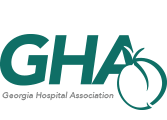The adult outpatient programs at Riverwoods Behavioral Health System provide treatment to patients at critical transitional phases in their recovery. The progams include: Intensive Outpatient Program (IOP) and Partial Hospitalization Program (PHP).
About Our Adult Outpatient Programs
Learn more about our adult outpatient programs at Riverview Behavioral Health Systems.
The adult outpatient programs at Riverwoods Behavioral Health System provide treatment to patients at critical transitional phases in their recovery process. Our treatment center is located in South Atlanta (Riverdale), Georgia. Outpatient programs are utilized to foster growth in clients that require a step-down program after they have completed inpatient stabilization, as this is often the most tenuous time in treatment. The programs can also be utilized as a step-up program when just routine care in the community is not intense enough to offer a positive, stable support system.
The outpatient programs are broken up into two different levels of care which are Partial Hospitalization Programming (PHP) and Intensive Outpatient Programming (IOP). These two programs are further broken down into three separate tracks which are psychiatric/mental health, addictive disease, and dual diagnosis. The different levels of care assure we can find a program that will be suitable to meet the patient’s individual needs.
PHP – Partial Hospitalization Programming
Learn more PHP at Riverwoods Behavioral Health Systems near Atlanta, GA.
PHP is the most intensive of the two outpatient programs, allowing patients to attend a 5 or 7-day treatment regimen and running between the hours of 9a.m. and 3:15p.m. The typical length of stay in the program ranges from 2-4 weeks depending on progress. All patients enrolled in PHP will attend 4-6 group therapy sessions daily and can receive individual and family sessions as needed. Patients will be under the care of a psychiatrist for medication monitoring throughout the process. While attending PHP, Riverwoods BHS offers the option to stay in our Serenity Village which is a dormitory style lodging component. This eliminates transportation issues to daily treatment and for some can offer a calm and supportive atmosphere when their own environment is a precipitating factor.
IOP – Intensive Outpatient Programming
Learn more about IOP at Riverwoods Behavioral Health.
Much like PHP, this is a 2-4 week program that is utilized as a transitional step-up or step-down program. IOP is much less restrictive than PHP and offers 5 or 7 days a week programming from 9a.m. to 12p.m. Patients will attend a minimum of 2 group therapy sessions a day. Individual and family therapy can be used throughout the process if deemed beneficial by the therapist. As IOP is therapy based only, patients needing medication monitoring and administration will be assisted by staff to arrange for private psychiatric treatment. IOP offers much more freedom and allows patients to receive the treatment they need while still being able to maintain their daily lives and complicated schedules.
Serenity Village
Learn more about our on-campus housing at Riverwoods Behavioral Health Systems.
Serenity Village on the Riverwoods Behavioral Health System campus is a dormitory style recovery residence for patients participating in our partial hospitalization programming for psychiatric and/or addictive diseases. The village was developed to eliminate transportation issues and offer a safe, secure, and sober environment for those who need help while participating in our partial hospitalization program. Our on-site managers are dedicated to the recovery process and will often take patients to community 12 step meetings, volunteer service work, and sober fun activities. They work with patients to help foster strength, motivation, and a healthy decision-making mentality.
While staying at Serenity Village, patients are provided three meals a day along with their room and board. Village residents are offered the opportunity to attend our seven days a week programming schedule. In addition to normally scheduled groups, patients receiving treatment for addiction are required to obtain a sponsor and attend 12 step meetings daily.
Psychiatric Track
Learn more about the psychiatric outpatient programming track.
The psychiatric track of treatment is geared toward reshaping thought processes and fostering positive cognitive experiences. Clients will discuss emotional and psychological problems to gain insight through constructive feedback. Clients are encouraged to develop a plan to prevent relapse and maintain good mental health. The Seven Pillars of Self Care are addressed which include medication management, nutrition, physical activity, leisure, the importance of sleep, healthy support systems, and spirituality. Illness education groups are conducted in regard to understanding depression, bipolar disorder, schizophrenia, and anxiety disorders. Psycho-educational groups assist clients with developing coping skills to reduce stress, manage anger, grief, and resolve family conflict while encouraging self-esteem and self-awareness to promote personal growth.
Chemical Dependency Track
Learn more about the chemical dependency outpatient programming track.
The addictive diseases track is structured to provide treatment for those battling the cycle of substance abuse and/or other addiction including but not limited to gambling, sex, or food. Solution based cognitive behavioral therapy is employed to give patients the coping and relapse prevention skills necessary to live sober and healthy lifestyles. Patients will learn how to build a support network, how to utilize support groups in their community and 12 step meetings, and how to obtain a sponsor. Through treatment in the addictive diseases track, we want patients to come to the realization that they are not alone in their battle.
Dual Diagnosis Track
Learn more about the dual diagnosis outpatient programming track.
The dual diagnosis track was formulated to treat patients with co-occurring psychiatric issues and addictive diseases. Treatment is equally devoted to an understanding of the psychiatric and addictive disease. In addition, education will allow patients to gain insight into how their mental illness can foster their addiction and conversely how their addiction and substance abuse will affect mental stability.







